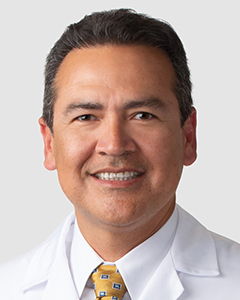What Is Food Addiction and How Can Bariatric Surgery Help?
Food addiction can be just as dangerous as addictions to alcohol or drugs, leading to obesity and other life-threatening conditions, such as diabetes, heart disease and hypertension.
Many choose bariatric surgery to lose weight. But having this procedure is just one component of getting control of your weight. To be successful, you must commit to lifestyle changes and getting mental health support.
What Is Food Addiction?
Food addictions are like addictions to drugs and alcohol. Eating certain “hyperpalatable” foods triggers the release of dopamine, a feel-good chemical in our brains.
Over time, someone with a food addiction will find that they need more and more of those foods to create those feelings of pleasure. The most common addictive foods are sugars, carbohydrates, fat and salt. Binge-eating is a closely related disorder.
Differing from normal food cravings, if you have a food addiction, you might exhibit the following behaviors, including:
- Obsessive calorie counting with bouts of fasting and dieting
- Eating secretively, or differently when dining with others
- Binge eating large quantities of food in a short period of time
- Feelings of hopelessness regarding your life because of your weight
- Feelings of guilt, shame and embarrassment after eating
- Not being able to stop eating after one or two bites and overeating at meals
Surgery not a quick fix
Bariatric surgery is not a quick fix, and all procedures require a presurgical health assessment to ensure you meet certain physical health requirements, such as BMI levels and presurgery weight loss.
And because of the considerable physical, emotional and behavioral changes accompanying bariatric surgery, psychological evaluation is also required.
Done over a series of sessions, the evaluation not only identifies your strengths but also identifies mental health challenges such as depression or anxiety, which might hinder the results of bariatric surgery.
A mental health counselor helps you create a plan to address potential pitfalls and set realistic expectations. For those dealing with food addiction, this might include cognitive behavior therapy (CBT), motivational guidance and even pharmaceuticals.
What Happens After Surgery
All surgeries come with post-operative concerns, and bariatric surgery is no different.
For patients with food addiction, the psychological risk of addiction transfer is a concern. Potential issues include:
- How you eat. Because of the changes to your digestive system, you will need to shift the amount and timing of how you eat toward smaller and more frequent meals. If you have a food addiction, your body can no longer process their go-to pleasure foods or binge-eating habits. This can cause them to experience dumping syndrome. Dumping occurs because of changes to your intestinal tract and causes uncomfortable (and potentially embarrassing) symptoms such as:
- Sweating and weakness or fainting
- Irregular or rapid heartbeats
- Low blood pressure
- Vomiting
- Explosive diarrhea and cramps
- Emotional changes. Your body not only looks and acts differently after surgery, but the required lifestyle changes can affect your self-image and force you to deal with long-held eating habits. Because of this, post-surgical recovery includes an extensive mental healthcare component that helps you create a plan to ward off issues such as depression or behavioral setbacks.
- Addiction transfer. Food addiction, as with other substance-based obsessions, comes with the added risk of addiction transfer once the foods you once craved are removed from your diet.
Your body is accustomed to the chemical surge that food delivers and will seek to transfer one compulsive behavior to another. In these cases counseling to prevent new, equally destructive, behaviors can help, as well as involvement with support groups dealing with food and drinking addictions. These include:
Bariatric surgery can combat weight gain brought on by addictive or compulsive eating behaviors. But for it to be successful, you must be committed to working with your team of surgeons and mental health care professionals and make the recommended changes to your eating and lifestyle habits. Together, you can redirect those impulses and discover that the real pleasure lies in living a long, healthy life.
Choose to Stay in Touch
Sign up to receive the latest health news and trends, wellness & prevention tips, and much more from Orlando Health Bayfront Hospital.
Sign Up










